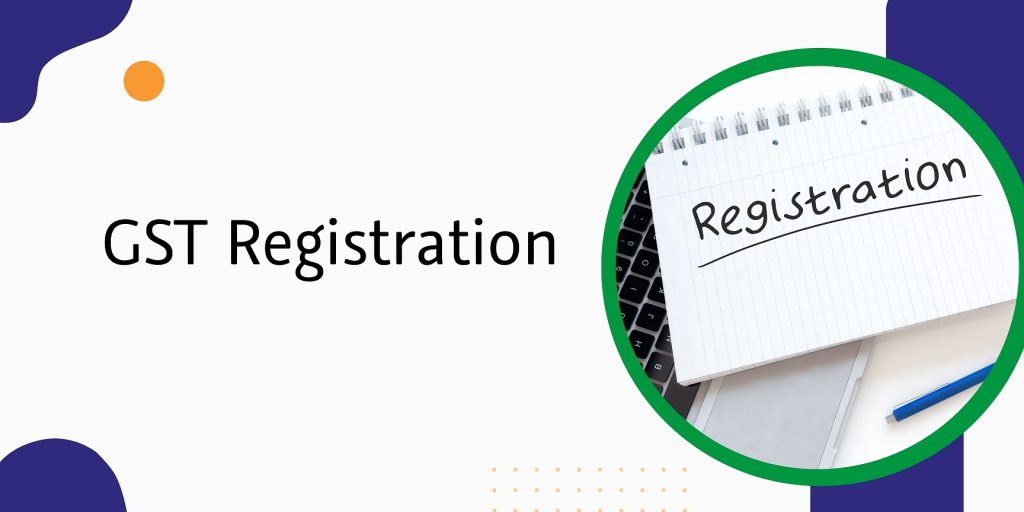Running a small business comes with its fair share of challenges. From managing finances to dealing with taxes, entrepreneurs have their plates full. One significant aspect of taxation that small business owners need to understand is the Goods and Services Tax.
What is GST?
Goods and Services Tax is a consumption tax levied on the supply of Goods and Services in many countries around the world. It is a value-added tax that is ultimately borne by the end consumer.
Preparing For GST
· Stay Informed
Keep yourself updated about changes in GST rules and rates.
· Professional Assistance
Consult a Tax professional who specializes in GST to understand the variation and optimize your tax liabilities.
· Accurate Records
Maintain accurate records of all your transactions, invoices, and purchases. This will simplify the feeling of GST Returns and ITC Management.
· GST Software
Consider using GST billing software to streamline your tax – related processes and reduce the risk of errors.
· Employee Training
Educate your team about GST to minimize errors and ensure that everyone in your organization is on the same page regarding GST Compliance.
GST Registration

1) Who needs to register for GST?
If you run a small business and your annual turnover exceeds the threshold limit, you are requires to GST. However, specific rules may differ from country to country. It’s very important to check your local tax regulations to determine whether you need to register for GST.
Benefits of GST Registration
1. Legitimacy
GST Registrations lend your businesses a sense of legitimacy which can help build trust among your customers and partners.
2. Input Tax Credit
When you are registered for GST, you can claim an Input Tax Credit on taxes paid on your purchases. This can significantly reduce your tax liability.
3. Access to a wider market
GST Registration allows you to expand your business across state lines without any hassle.
GST Compliance
1. Filing GST Returns
Small business owners must file GST returns periodically. This process involves documenting all your sales and purchases and paying the appropriate GST on your sales.
2. GST Invoices
Maintaining proper GST invoices is a key aspect of compliance. Your invoices should include all necessary details such as your GST number, the customer’s GST Numbers, the amount of GST, and more.
GST: Everything You Need to Know in 2023
GST Rates
GST rates can differ based on the type of Goods and Services. In most countries, there are multiple GST rate slabs such as 5%, 12%, 18%, and 28%. It’s important for small business owners to understand the applicable GST rates for their products and services.
Impact of GST on Small Businesses
Small businesses are the lifeblood of any economy. They play a very important role in driving economic growth, and generating employment. When it comes to GST, small businesses are both beneficiaries and contributors.
Here’s how GST influences small businesses:
1. Improve cash flow
Under the GST system, small businesses can claim input tax credits on the GST paid for inputs, such as raw materials and services. This not only reduces the overall tax liability but also enhances cash flow.
2. Increased Competitiveness
Small businesses can offer competitive prices as GST minimizes the cascading effect of taxes. This allows them to expand their customer base and compete effectively with larger enterprises.
3. Profit Margins
The GST rate can impact profit margins. Items subject to Higher GST rates may have lower profit margins so it’s essential to manage cost efficiently.
4. Pricing Strategies
Small Businesses need to set their product or service prices in a way that includes the appropriate GST rate.
Advantages of GST in Small Business
· Simplified Tax Structure
GST has streamlined the tax system, reducing the complexity for small business owners.
· Increased Compliance
The digital nature of GST has improved compliance and transparency.
· Uniform Tax Rates
With GST, there’s a standardized tax rate across the country, making it easier to do business in multiple states.
GST Turnover Requirement for GST Registration
Companies surpassing an annual Turnover of Rs. 40 lakh (For goods) and Rs. 20 lakh (For Services) are required to register for GST.
1) For Regular Business
Businesses with a cumulative turnover of Rs. 20 lakh (Rs. 10 lakh for special category states) in a financial year were required to register for GST.
2) For Service Provides
Service providers with an aggregate turnover of Rs. 20 lakh (Rs. 10 lakh for special category states) were required to register for GST.
Taxation of Salary under GST
Salaries are not considered goods or services so they are not taxable under GST Regime.
Input Tax Credit in GST
Input Tax Credit means the goods and services tax paid by a taxable person on any purchase of goods and services that are used or will used for businesses. It allows businesses to offset the tax they have paid on inputs against the tax liability on their output.
Why is GST Important for Small Businesses?
Here are some points that show why GST is important for small businesses.
· Legal Requirement
GST Registration is mandatory for businesses with a turnover exceeding a certain threshold. Failure to comply with this requirement can result in legal penalties. Therefore understanding your GST obligations is crucial to avoid legal troubles.
· Competitive Advantage
By registering for GST voluntarily, even if your turnover is below the threshold, you can avail of various benefits such as claiming Input tax credits. This can enhance your competitiveness by reducing your cost base.
· Streamline Operations
GST Simplifies the taxation process by unifying different taxes into one. This simplification can save you time and resources, allowing you to focus on growing your business.
Common Challenges Faced by Small Businesses

1) Complex Compliance
GST Regulations can be complex and understanding them fully can be a daunting task. Small businesses may struggle to keep up with changing rules and compliance requirements.
2) Digital Infrastructure
The move to a digital system for GST compliance can be challenging for businesses with limited technical resources. Many small businesses are still adapting to the digital filing requirements.
3) Classification and Documentation
Accurate classification of goods and services is vital for GST compliance. Maintaining proper documentation is essential but can be cumbersome for small businesses.
4) Accounting software costs
To meet compliance needs, small businesses might need to invest in accounting software. This can be an additional cost, particularly for small businesses.
GST Compliance for Small Business
1) Invoicing and Returns
Small businesses must issue proper invoices and file GST returns on time to avoid penalties.
2) GST Rates
Understanding the various GST rates is very important. GST is categorized into five tax slabs ranging from 0% to 28%. Correctly classifying your products or services under the right slab is essential to ensure compliance.
Exploiting GST for Profit Maximization
Here you will see what strategies are used by small businesses to maximize their profits through GST.
1) Efficient Expense Management
Small businesses can reduce their GST liability by managing their expenses effectively.
2) Prize Optimization
Consider How GST affects your pricing strategy. Depending on your industry and competition you might choose to absorb the GST cost or pass it on to your customers.
3) Cash Flow Management
Understand the cash flow implications of GST. By planning for the timing of GST payments and returns, you can ensure your cash flow remains healthy, minimizing any financial strains.
4) GST Invoicing Software
Invest in reliable invoicing software that can streamline GST Streamline. This not only saves time but also reduces the risk to others.
5) GST Audits
Regularly review your GST Compliance and financial records. This will help you identify any discrepancies or errors and rectify them promptly.
GST Compliance tips for Small businesses
· Regularly Update Your Knowledge
Stay informed about the changes in GST rules and rates.
· Maintain Accurate Records
Keep detailed records of all transactions to simplify the filling of GST returns.
· Consult a Tax Professional
Seek expert advice to ensure compliance and optimize your tax liabilities.
· Utilize GST Software
Consider using GST Software to streamline your tax- related process.
· Train your team
Educate your team about GST to avoid common errors and penalties.
GST For Small Business
| Section | Key Points |
|
Understanding GST |
-Definition of GST – GST Components – GSTIN -GST Rates |
| GST Benefits for Small Business | -Simplified Tax Structure
-Input Tax Credit – Improved cash flow -National Market Access |
| GST Challenges for Small Business | -Compliance Tax Burden
-Accounting Software costs -Frequent changes in GST laws |
Conclusion
GST is a fundamental and important part of the tax landscape for small businesses in many countries. Understanding GST is vital for any small business. It not only ensures compliance with the law but also helps in managing your finances more effectively. Small businesses need to be aware of GST obligations, including Registrations, filing returns, and maintaining accurate records.
Remember that while GST is just one aspect of your business, mastering it can give you a competitive edge and help your small business grow. GST is really useful and helpful for small businesses.
FAQ (Frequently Asked Questions)
1) What is GST?
GST stands for Goods and Services Tax, and it is a consumption-based tax levied on the supply of goods and services in India. It replaced multiple indirect taxes to create a unified taxation system.
2) Who needs to register for GST?
Any business with an annual turnover exceeding the GST threshold limit is required to register for GST. The threshold limit varies based on the type and location of the business
3) What are the different GST rates?
GST has multiple tax rates, including 0%, 5%, 12%, 18%, and 28%. The rate applicable depends on the category of goods or services being supplied.
4) What is the Input Tax Credit (ITC)?
ITC allows businesses to claim a credit for the GST they pay on inputs (purchases) against the GST they collect on outputs (sales). It reduces the overall tax liability.
5) How often do I need to file GST returns?
Small businesses generally need to file GST returns on a monthly or quarterly basis, depending on their turnover. An annual return is also required.
6) Can small businesses opt for the Composition Scheme?
Yes, small businesses with a turnover below a specified threshold can opt for the Composition Scheme, which allows them to pay GST at a fixed rate and reduces compliance requirements.
7) What are the penalties for late GST filing or non-compliance?
Penalties for late filing and non-compliance can vary but may include late fees and interest charges. It’s essential to meet filing deadlines and comply with GST regulations to avoid penalties.
8) Can I claim a GST refund as a small business?
Small businesses can claim a GST refund when the input tax credit exceeds the GST liability. Refund claims must be made within a specified timeframe.
9) What are exempt and non-GST supplies?
Exempt supplies are not subject to GST, while non-GST supplies do not fall under the GST tax system. Small businesses should be aware of these distinctions in their transactions.
10) How can I simplify GST compliance for my small business?
To simplify GST compliance, use accounting software, maintain accurate records, and consider hiring a GST consultant or professional to assist with compliance and filings.